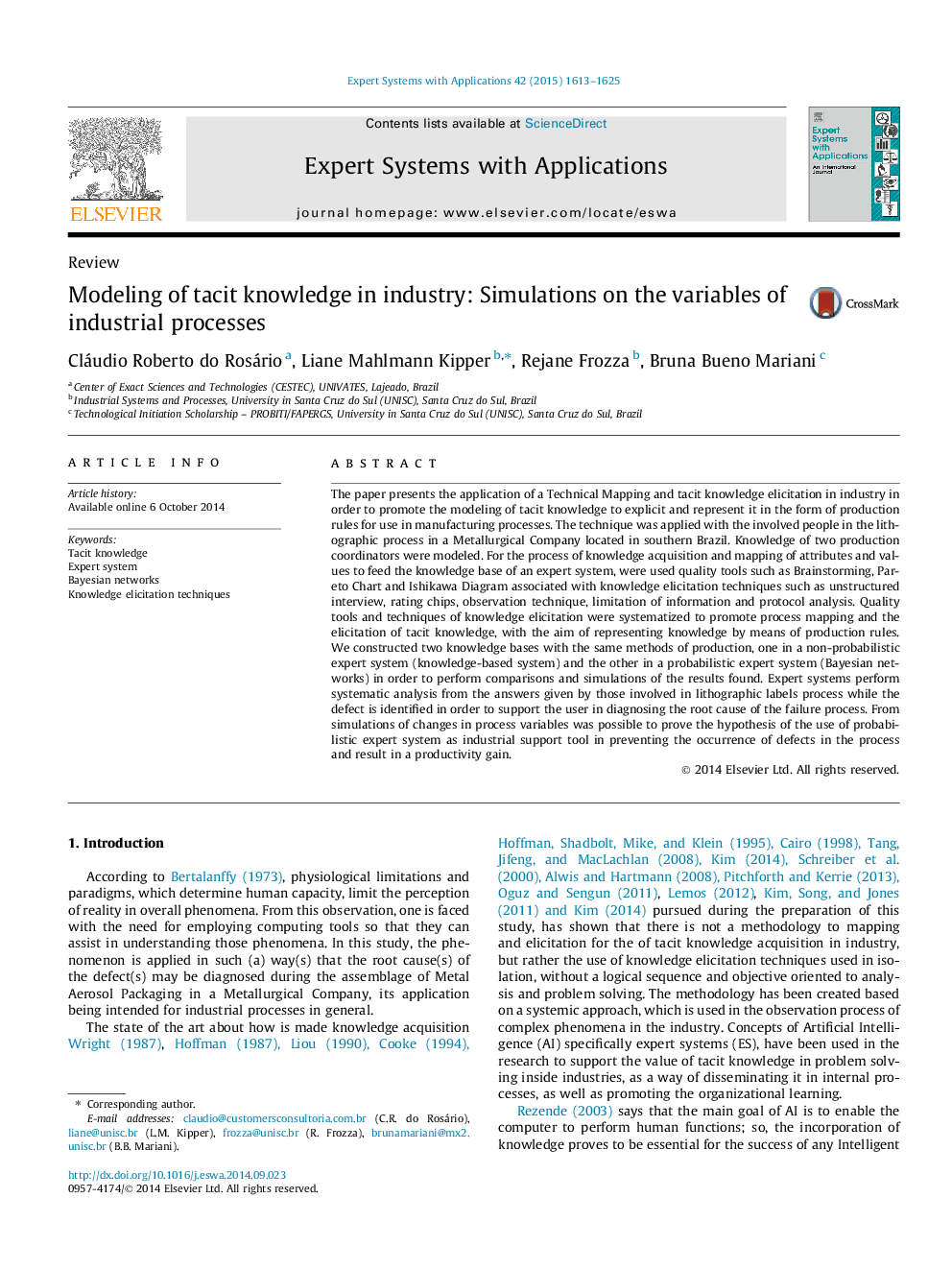ترجمه فارسی عنوان مقاله
مدل سازی دانش ضمنی در صنعت: شبیه سازی بر روی متغیرهای پروسه های صنعتی
عنوان انگلیسی
Modeling of tacit knowledge in industry: Simulations on the variables of industrial processes
| کد مقاله | سال انتشار | تعداد صفحات مقاله انگلیسی |
|---|---|---|
| 39955 | 2015 | 13 صفحه PDF |
منبع

Publisher : Elsevier - Science Direct (الزویر - ساینس دایرکت)
Journal : Expert Systems with Applications, Volume 42, Issue 3, 15 February 2015, Pages 1613–1625
ترجمه کلمات کلیدی
دانش ضمنی - سیستم خبره - شبکه های بیزی - تکنیک های استخراج دانش
کلمات کلیدی انگلیسی
Tacit knowledge; Expert system; Bayesian networks; Knowledge elicitation techniques

